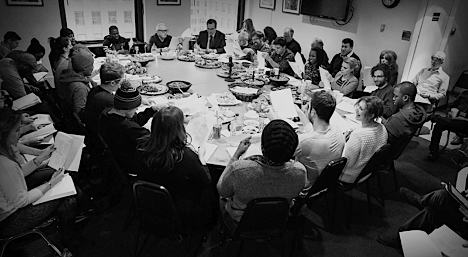Are you sure? Like most things in life, it’s a lot harder to become a screenwriter than it might seem.
But, you’ve got a great idea for a movie you’d love to see on the big screen. You even know the actors who would play the lead roles.
Or you’ve got a notebook filled with character descriptions and backstories for a streaming series you’ve been actively visualizing on your TV.
You’ve always enjoyed writing and figure you might as well make a living doing something you love.
Aye, there’s the rub.
In spite of the explosion of content available to viewers, few screenwriters make a full-time living at the craft. In the US less than 5,000 people earn their living solely from screenwriting, whether in TV writers’ rooms or writing features on contract. Only a tiny and shrinking number of “spec scripts” are sold and produced every year.
The good news is that the burgeoning indie film industry has created lots of options to fill your burning desire to write for the screen. But there are a few things to learn first.
Screenwriting is not something most people can just decide to do. Even if you already have some skill and training as a writer. There are rules, written and unwritten, and there are expectations as to format.
You don’t need to go to film school to become a screenwriter, but you do need to budget both time and money to learn the craft.
First, read screenplays. There are several places to find good ones to download. Here are 10 sites, courtesy of the New York Film Academy, where you can download screenplays from produced films. Look for films you’ve either seen or plan to see. Observe the differences between what’s on the page and what ends up on screen. Notice the sparse descriptions, simple present tense verbs, and the formatting.
This is actually important. In order to get people to read your script, it needs to look like a script. You can learn about the different kinds of script formatting with some focused online searching, or you can beg, borrow, or buy Dave Trottier’s The Screenwriter’s Bible. That will help you for the rest of your screenwriting career.
Next, you should invest in a software program. If you’re not yet sure about screenwriting, try one of the free software. It’s possible to write without one, but experienced readers can recognize immediately whether you’ve attempted to beat the system. I have both Writer Duet, which I use with my students, and of course, Final Draft. But other writers swear by Celtx or FadeIn.
Buy or borrow a few books on screenwriting. We have our favorites, but there are dozens of great ones to choose from.
Now, join some discussion groups where you can listen to the pros. I talk quite a bit about these in my book, What I Wish I’d Known About Screenwriting Before I Wrote My First Screenplay, which is a guide to resources.
Just remember, it’s a long game. Don’t quit your day job, yet. And much as we all love to dream about winning the lottery, the days of million-dollar bidding wars are long gone.
But if you love the screen, big and small, and you fancy yourself a writer and a storyteller, you can certainly find screenwriting an exhilarating pastime. One that could even land you in a writers’ room or credited on a feature film.
As for your brilliant feature? Go ahead and write the script. Enter it into a few contests. It certainly could be a calling card for you to showcase your storytelling talent. But write it because you want to. Be a screenwriter.


